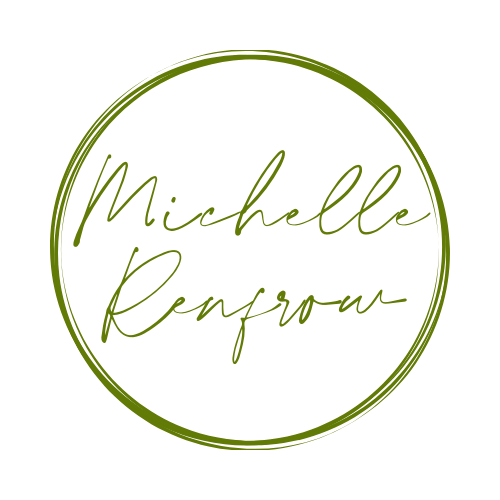How many times a day do you talk to yourself? How many times a day do your kids or your partner talk to themselves? How often do you notice that the talk is negative?
Oftentimes when I’m working with youth and I hear them saying something derogatory towards themselves or others I find myself saying “put ups; not put-downs?” It pains me to hear people say things like “I’m stupid” or “I suck at art”.
I have a really strong belief that we should be correcting those negative things that come out of our mouths. Because as we all know self talk is important. In fact, it is actually more important than we think it is!
Self-talk is more of a big deal than you think it is. What if as an adult you’re at a friend’s house and there are multiple children in the living room playing and they hear you talk about your body or your talent or your style in a bad way?
What we say not only has power to impact ourselves but it has power to sway those around us. Calling ourselves “fat” in front of a group of 11 year old girls who are struggling with their identities as they start to develop not only impacts you but it impacts those impressionable young ladies as well.
Learning to “flip the script” is one way that’s very important when it comes to self talk. Our subconscious is typically driving those negative things that are coming out of our mouths and a little bit of extra practice on your part to change it from a negative to a positive is all it takes to improve your mental health as well as your physical health.
Healthline.com in their article says that when you learn to swap that negative self-talk to a more positive one, you can improve your health. They said, “ Self-talk can enhance your performance and general well-being. For example, research shows self-talk can help athletes with performance. It may help them with endurance or to power through a set of heavy weights.
Furthermore, positive self-talk and a more optimistic outlook can have other health benefits, including:
- increased vitality
- greater life satisfaction
- improved immune function
- reduced pain
- better cardiovascular health
- better physical well-being
- reduced risk for death
- less stress and distress
It’s not clear why optimists and individuals with more positive self-talk experience these benefits. However, research suggests people with positive self-talk may have mental skills that allow them to solve problems, think differently, and be more efficient at coping with hardships or challenges. This can reduce the harmful effects of stress and anxiety.”
The article goes on to identify the types of negative self-talk one uses that is harmful.
They emphasize that you must begin to identify the negative patterns before you can learn to practice better self-talk.
Generally they say thinking and self-talk fall into 4 categories.
![[Self Talk] - image 2-min](https://michellerenfrow.com/wp-content/uploads/2022/06/Self-Talk-image-2-min.png)
![[Self Talk] - image 3-min](https://michellerenfrow.com/wp-content/uploads/2022/06/Self-Talk-image-3-min.png)
- Personalizing. You blame yourself for everything.
- Magnifying. You focus on the negative aspects of a situation, ignoring any and all of the positives.
- Catastrophizing. You expect the worst, and you rarely let logic or reason persuade you otherwise.
- Polarizing. You see the world in black and white, or good and bad. There’s nothing in between and no middle ground for processing and categorizing life events.
When you begin to recognize your types of negative thinking, you can work to turn them into positive thinking. This task requires practice and time and doesn’t develop overnight. The good news is that this can be done.
As someone who works with preteens and teenagers everyday, Self-talk is something that I am very familiar with.
I hear a lot of the four identified types of negative self-talk as outlined above. some of the best ones are “I’m never going to pass this class.
I can’t learn anything, my life is ruined? Or “this is never going to get better. I’m never going to be good at this so why do I even try?
Some of my students get very personal and say things like, “the teacher hates me and I’m never going to pass anything because she hates me ” “Another fan favorite is when a student fails a particular essay or homework assignment or test and says ” that’s it I’m going to fail the rest of the year because I failed this one assignment.
One of the best ways I find to get rid of the negative self-talk is to use humor. I am all about making funny comments, trying to entertain others with laughter. I believe that sharing the “white-hot glittery mess” that is my life is one valuable way of dealing with something that might be negative but switching it into something funny and or positive.
I don’t use negative self-talk when I’m posting on social media. Instead I take what I would consider to be a frustrating and or difficult situation and turn it into something funny. For example after my recent surgery I had to take some pain medications. My body does not like pain medication. Nothing in my body likes pain medication.
And so while puking my guts out over the toilet the intensity of the sickness was so strong that I wound up peeing myself. Instead of harping on it and calling myself ridiculous or putting myself down for my inability to control my bladder, I made it into a joke. I shared it with the rest of the world and allowed people to empathize and or just normalize how funny the situation was. I had 100% control over how I dealt with the situation and how I chose to handle it emotionally.
Part of being able to change the negative self-talk is to figure out what times of the day or the week are you more susceptible to being negative. Maybe you’re not a morning person so you walk into school and you spill coffee all over yourself and instead of being okay with it and letting it roll off your shoulders, you call yourself an idiot. checking in on yourself before you get started for the day is an important factor in flipping your script from negative to positive self-talk.
Being able to figure out when and where the most challenging times for you are and planning in advance the type of self-talk you want to use will make a significant difference when you find yourself in the moment and making a choice between saying something negative and saying something positive.
In addition to the pitfalls of when and where you’re more susceptible to being negative, check in with yourself on your feelings. If you’re about to walk into a meeting that you’re anxious about you’re more likely to use negative self-talk. When you’re about to walk into doing something fun and exciting that you’ve been waiting for a really long time have you ever used negative self-talk in that situation? No!
In addition to the pitfalls of when and where you’re more susceptible to being negative, check in with yourself on your feelings. If you’re about to walk into a meeting that you’re anxious about you’re more likely to use negative self-talk.
![[Self Talk] - image 4-min](https://michellerenfrow.com/wp-content/uploads/2022/06/Self-Talk-image-4-min.png)
When you’re about to walk into doing something fun and exciting that you’ve been waiting for for a really long time have you ever used negative self-talk in that situation? NO!! So do yourself a favor when you’re feeling down or frustrated or angry. Keep an eye on the words that are coming out of your mouth or the things you say to yourself in your head
Self-talking positive people are the bomb. Although I will admit that sometimes friends who are positive all the time and in every situation tend to annoy me after a little while (JK to all my positive people. You know I love you more than my luggage).
But it is true what they say in that you should hang out with the people that you want to be more like or that you want to “thrive off of their vibe” and it really can help you change your outlook and yourself talk as well. In the famous movie Legally Blonde, Elle Woods finds out that this woman she knew (a famous fitness instructor) had been arrested for murdering her husband.
When her legal team discusses the motive she says, “Exercise gives you endorphins. Endorphins make you happy. Happy people just don’t shoot their husbands,” Elle says confidently. I use this line a LOT with people and I stand by it.

Sticking to the happy people who have tons and tons of endorphins can’t NOT rub off on you. Have you ever checked the caller ID on your phone when it’s ringing and saw the name of a person who just is the most negative person you know. You’re hesitant to answer.
You know that the call will be a downer and you’re just not in the right mindset to handle that conversation at the time so you don’t answer. See what I mean those that use positive self-talk whether it’s out loud or in their minds do make a difference.
And one of the last ways that you can really work on your self talk is positive affirmations! I have little positive affirmation cards all around my house. I live off of them.
I may have a small obsession with buying positive affirmation cards and cute little stickers off of Amazon. My shopping cart is littered with cute little options for things that not only do I use for myself but I give away to others.
Here are some recent ones I found on amazon that I found that I really like. They are like little pogs that I can keep or give away. They are not stickers but they are cute and thought provoking and inspire me a lot.
Others I have found are cute playing card size and I have some taped to my bathroom mirror, on the wall in my bedroom and in other places around my home.
Yes, they are more helpful when you can see them every day.
I even made a canvas painting of all the positive words I thought about myself and some of the ones I felt I needed to remind myself of every now and then.
So, GO, Use that positive self-talk to improve yourself and those around you!
I promise you will see some uplifting changes in yourself!


![[Self Talk] - image 1-min](https://michellerenfrow.com/wp-content/uploads/2022/06/Self-Talk-image-1-min.png)